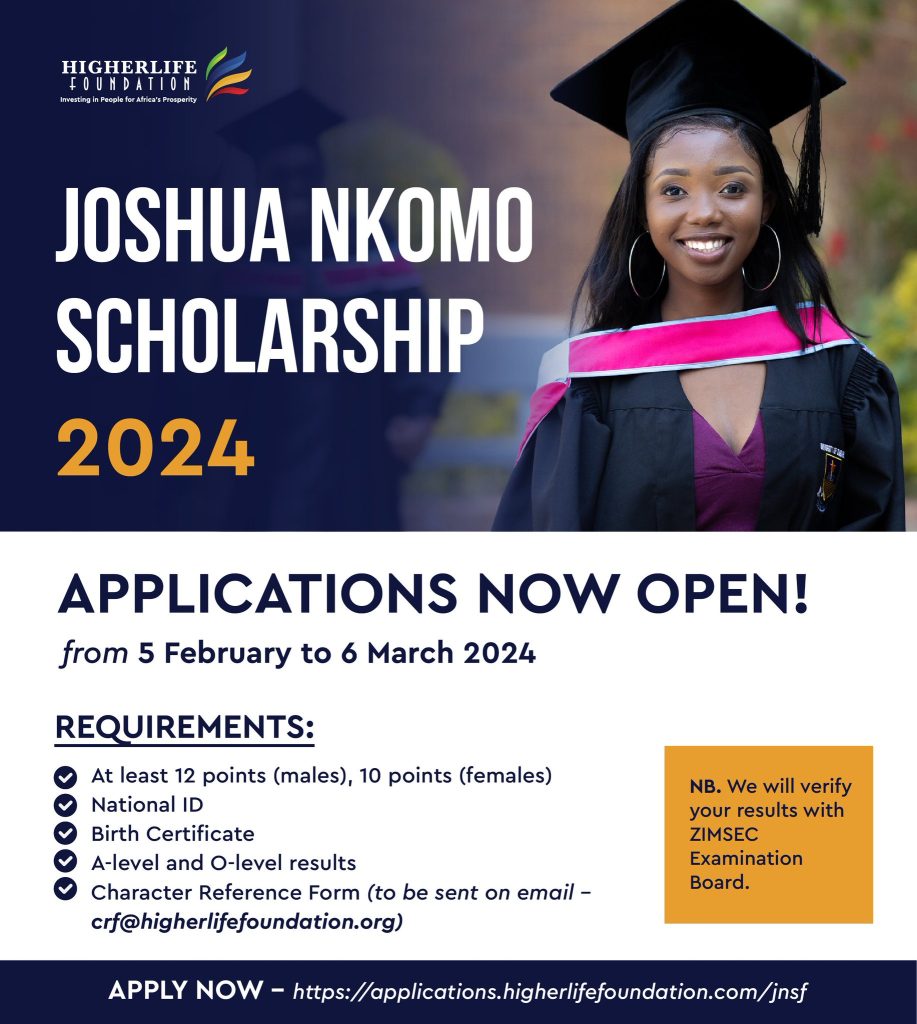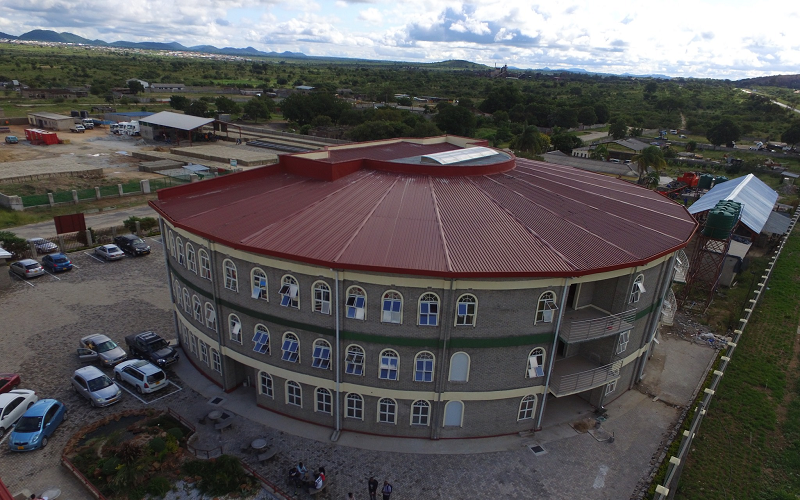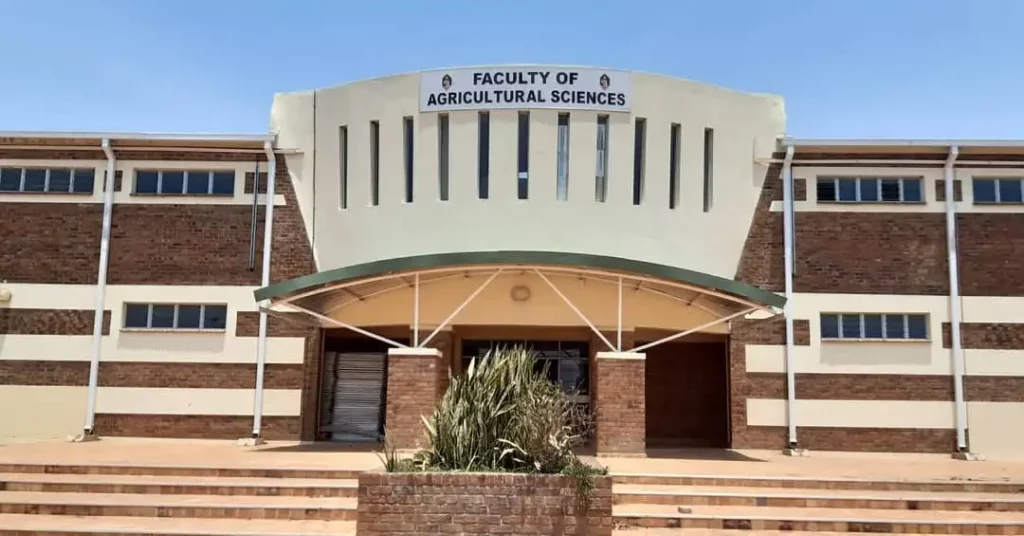Exploring Educational Opportunities in Zimbabwe: Joshua Nkomo Scholarships, Lupane State University Courses & Admission, and Gwanda State University Overview
The Joshua Nkomo Scholarships, 2024, offered by the Higherlife Foundation, aim to provide financial assistance to citizens of Zimbabwe pursuing a Bachelor’s degree in any discipline. Here are the details about the scholarship:
- Provider: Higherlife Foundation
- Scholarship Name: Joshua Nkomo Scholarships, 2024
- Degree Level: Bachelors
- Eligible Courses: Programs of any discipline
- Eligible Nationalities: Open to citizens of Zimbabwe
- Scholarship Value: Partial Funding, varies
- Deadline: Deadline varies
Eligibility Criteria:
To be eligible for the Joshua Nkomo Scholarships, 2024, candidates must meet the following criteria:
- Demonstrate academic merit, evidenced by performance in public examinations like ZIMSEC and Cambridge.
- For A-Level applications, applicants must have at least 7 “A” grade passes.
- For University applications, females must have at least 10 points, and males must have at least 12 points.
- Leadership potential demonstrated by active participation in extracurricular activities and community engagements.
- Personal integrity evidenced by school and other reports from responsible authorities.
Required Documents:
Applicants need to submit the following documents:
- Character Reference Form (to be hand-delivered to any Higherlife Foundation office)
- Academic certificates/public exam results
- National ID
- Birth Certificate
- Character Reference Form

Application Process:
Candidates need to fill out an online application form available on the Higherlife Foundation website.
Funding Type:
The scholarship provides partial funding, and the exact amount varies depending on individual circumstances.
Deadline:
The deadline for submitting applications varies and should be checked on the scholarship provider’s website.
Scholarship Location:
The scholarship can be taken at universities or colleges in Zimbabwe.
Overall, the Joshua Nkomo Scholarships, 2024, present an excellent opportunity for talented and deserving students from Zimbabwe to pursue their higher education dreams with financial support from the Higherlife Foundation.
Great Zimbabwe University: Courses, Tuition, and Overview
Introduction:
Established in 1999, Great Zimbabwe University (GZU) stands as a beacon of higher education excellence in Zimbabwe, offering a diverse range of programs and opportunities for students to pursue their academic and professional aspirations. This article provides an overview of GZU, highlighting its academic offerings, admission policy, and recognition and accreditation.
General information
| Alternative names | GZU |
|---|---|
| Founded | 1999 |
| Accreditation | Zimbabwe Council for Higher Education (ZIMCHE) |
Location and contacts
| Address | P.O. Box 1235 Masvingo, Masvingo Zimbabwe |
|---|---|
| City population | 1,639,000 |
Location and Setting:
Situated in the suburban setting of Masvingo, a small city with a population range of 50,000-249,999 inhabitants, GZU benefits from its tranquil surroundings while remaining accessible to students from various regions. Masvingo’s rich cultural heritage and historical significance add to the university’s unique appeal, providing students with a stimulating and enriching academic environment.
Tuition
| International studetns | 1,495 per annum (USD) |
|---|---|
| Local studetns | Undergraduate, 566-746 per annum; Postgraduate, 736-1,096 per annum (USD) |
Great Zimbabwe University has on-campus housing.
Academic Offerings:
Great Zimbabwe University offers a comprehensive array of courses and programs leading to officially recognized higher education degrees. These include pre-bachelor’s degrees such as certificates, diplomas, associate degrees, as well as bachelor’s degrees across various disciplines. The university’s academic curriculum is designed to foster critical thinking, creativity, and practical skills necessary for success in today’s dynamic global landscape.
Admission Policy:
GZU adopts a selective admission policy, considering students’ performance in entrance examinations, as well as their past academic records and grades. With an acceptance rate range of 60-69%, the university attracts motivated and talented individuals who demonstrate the potential to excel academically and contribute meaningfully to society. International applicants are also welcomed, adding to the diversity and vibrancy of the student body.
Facilities and Services:
In addition to its academic offerings, GZU provides a range of facilities and services to support student learning and development. These include housing accommodations for students, sports facilities to promote physical well-being, online courses and distance learning opportunities for flexible learning, as well as administrative services to assist students with various academic and logistical needs.
Faculty and Departments
| National Diploma | Adult Education, Continuing Education, Philosophy, Religious Studies, Theology |
|---|---|
| Bachelor Degree | Agricultural Education, Art Education, Foreign Languages Education, Home Economics Education, Mathematics Education, Music Education, Native Language Education, Primary Education, Religious Education, Special Education |
| Bachelor Degree – Honours | Accountancy, Adult Education, African Languages, Agricultural Education, Animal Husbandry, Anthropology, Archaeology, Art Education, Banking, Business Administration, Business and Commerce, Business Education, Computer Science, Continuing Education, Cultural Studies, Development Studies, Ecology, Economics, Education, Educational Administration, English, Environmental Studies, Finance, Fishery, Foreign Languages Education, Geography, Government, Heritage Preservation, History, Home Economics Education, Horticulture, Human Resources, Humanities and Social Science Education, Information Technology, Insurance, Labour and Industrial Relations, Law, Management, Marketing, Mathematics, Mathematics Education, Media Studies, Museum Studies, Music, Musicology, Native Language Education, Operations Research, Peace and Disarmament, Performing Arts, Philosophy, Physical Education, Physics, Political Sciences, Preschool Education, Primary Education, Psychology, Public Administration, Religious Education, Religious Studies, Rural Studies, Science Education, Secondary Education, Social Sciences, Sociology, Soil Science, Special Education, Statistics, Technology Education, Theatre, Town Planning, Transport Management, Wildlife |
| Postgraduate Diploma | Agricultural Education, Art Education, Business Education, Computer Education, Education, Foreign Languages Education, Higher Education Teacher Training, Home Economics Education, Humanities and Social Science Education, Mathematics Education, Music Education, Native Language Education, Religious Education, Science Education, Teacher Training |
| Master Degree | Accountancy, African Languages, Banking, Business Administration, Business and Commerce, Curriculum, Demography and Population, Development Studies, Economics, Education, Educational Psychology, Finance, Foreign Languages Education, Gender Studies, History, Human Resources, Humanities and Social Science Education, Industrial and Production Economics, Information Technology, Management, Native Language Education, Preschool Education, Psychology, Social Policy, Special Education |
| Master of Philosophy | Agriculture, Environmental Studies, Geography, Performing Arts |
| Doctorate | Accountancy, Business Administration, Cultural Studies, Curriculum, Economics, Educational Psychology, Educational Sciences, Finance, Management, Musicology, Preschool Education, Psychology, Special Education |
Great Zimbabwe University faculties and divisions
| Centre : African and Asian Studies | African Studies, Asian Studies |
|---|---|
| Centre : Gender and Cultural Studies | Gender Studies, Social Policy |
| Centre : Special Needs Education | Special Education |
| School : Agriculture and Natural Sciences | Animal Husbandry, Computer Science, Environmental Studies, Fishery, Geography, Horticulture, Mathematics, Natural Sciences, Operations Research, Physics, Soil Science, Statistics, Wildlife |
| School : Arts, Culture and Heritage Studies | African Languages, Archaeology, Cultural Studies, Development Studies, English, Heritage Preservation, History, Literature, Media Studies, Museum Studies, Music, Musicology, Performing Arts, Philosophy, Religious Studies, Theatre |
| School : Commerce | Accountancy, Banking, Business Administration, Business and Commerce, Economics, Finance, Information Technology, Insurance, Management, Marketing, Transport Management |
| School : Education | Adult Education, Agricultural Education, Art Education, Computer Education, Continuing Education, Curriculum, Education, Educational Administration, Educational Psychology, Home Economics Education, Mathematics Education, Music Education, Native Language Education, Physical Education, Preschool Education, Primary Education, Religious Education, Science Education, Secondary Education, Special Education, Teacher Training, Technology Education |
| School : Law | Law |
| School : Social Sciences | Anthropology, Demography and Population, Human Resources, Labour and Industrial Relations, Peace and Disarmament, Political Sciences, Psychology, Public Administration, Rural Planning, Rural Studies, Social Policy, Social Sciences, Sociology, Town Planning |

Recognition and Accreditation:
Great Zimbabwe University is officially recognized and institutionally accredited by the Ministry of Higher and Tertiary Education, Innovation, Science and Technology Development of Zimbabwe. This accreditation ensures that the university meets the standards of quality and excellence set forth by the government, providing assurance to students and stakeholders alike.
In addition to institutional accreditation, GZU holds specialized or programmatic accreditations from bodies such as the Zimbabwe Council on Higher Education (ZimCHE). These accreditations serve as further validation of the university’s commitment to delivering high-quality education and ensuring that its programs meet industry standards and expectations.
Conclusion:
Great Zimbabwe University continues to uphold its mission of empowering minds and transforming futures through its dedication to academic excellence, innovation, and inclusivity. As a leading institution of higher learning in Zimbabwe, GZU remains steadfast in its commitment to providing students with the knowledge, skills, and opportunities they need to thrive in an ever-evolving world.
Gwanda State University – Overview, Requirements and Admission Process
Gwanda State University is ranked as follows according to EduRank.org:
General information
| Alternative names | GSU |
|---|---|
| Founded | 2012 |
Location and contacts
| Address | Filabusi Zimbabwe |
|---|---|
| City population | 2,000 |
| Phone | +263 84 282 4720 |
- World Ranking: #10,518 out of 14,131 universities worldwide.
- Africa Ranking: #512 out of 1,104 universities in Africa.
- Zimbabwe Ranking: #13 out of 18 universities in Zimbabwe.
Here are some additional details about Gwanda State University:
- Enrollment: Approximately 2,000 students.
- Type: Non-profit institution.
- Funding: Public-private partnership.
- Highest Degree: Bachelor’s degree.
Acceptance Rate & Admissions:
The acceptance rate for Gwanda State University is estimated to be around 80%, although the university does not provide specific data on acceptance rates. This estimate is based on admission statistics from similar universities with comparable research profiles.
Tuition Fees:
Below is an overview of the tuition fees per year for various undergraduate programs at Gwanda State University. Note that these fees are approximate and subject to change, and do not include additional expenses such as accommodation, textbooks, or living expenses:
- Bachelor of Science in Agriculture: ZWD 120,000
- Bachelor of Science in Computer Science: ZWD 150,000
- Bachelor of Science in Nursing: ZWD 130,000
- Bachelor of Commerce in Accounting: ZWD 140,000
- Bachelor of Education in Primary Education: ZWD 100,000
- Bachelor of Arts in English and Communication Studies: ZWD 110,000
- Bachelor of Science in Mathematics: ZWD 120,000
- Bachelor of Science in Psychology: ZWD 130,000
- Bachelor of Science in Environmental Science: ZWD 125,000
- Bachelor of Science in Geology: ZWD 140,000

Programs and Degrees:
Gwanda State University offers programs and courses leading to Bachelor’s, Master’s, and Doctorate degrees in various academic fields. Some of the fields and programs available include Agriculture, Computer Science, Nursing, Commerce (Accounting), Education, English and Communication Studies, Mathematics, Psychology, Environmental Science, and Geology. It’s important to visit the university’s official website for the most up-to-date information on the programs offered.
- Metallurgy
- Bachelor of Engineering (Honors) Degree in Metallurgical Engineering
- Geomatics & Surveying
- Bachelor of Engineering (Honors) Degree in Geomatics and Surveying
- Mining Engineering
- Bachelor of Science (Honors) Degree in Mining Engineering
- Marketing
- Bachelor of Commerce (Honours) Degree in Marketing
- Accounting
- Bachelor of Commerce (Honours) Degree in Accounting
- Agricultural Economics
- Bachelor of Science (Honours) Degree in Agricultural Economics
- Animal Production & Health
- Bachelor of Science (Honors) Degree in Animal Production & Health
- Horticulture and Crop Production
- Bachelor of Science (Honours) Degree in Horticulture and Crop Production
- Mathematics & Statistics
- Bachelor of Science (Honours) Degree in Mathematics and Statistics
- Geography and Environmental Science
- Bachelor of Science (Honours) Degree in Geography and Environmental Science
These programs cover a diverse range of disciplines, providing students with opportunities to pursue studies in engineering, commerce, agriculture, and environmental science. Each program offers specialized training and knowledge to prepare students for careers in their respective fields.
Admission Requirement
- Application Process:
- Fully complete the application form available for download on the university’s website.
- Pay a non-refundable application fee of USD $15.
- Submit certified copies of all academic certificates, including official transcripts where applicable.
- Provide a certified copy of your National Identification Document or valid Passport.
- Bank Details for Application Fee Payment:
- Bank: CBZ or Agribank
- Account Name: Gwanda State University or Gwanda State University Fees
- Account Numbers (ZWL and Nostro): Provided for both banks
- Branch: 8th Ave Branch for CBZ or Filabusi for Agribank
- Entry Requirements for Undergraduate Programs:
- Obtain at least 5 passes at C or better grades in General Certificate of Education (G.C.E.) at Ordinary Level or Cambridge or equivalent, including English Language and Mathematics.
- Have General Certificate of Education (G.C.E.) at Advanced Level or equivalent in at least 2 subjects relevant to the chosen degree program.
- Alternatively, possess a relevant National Diploma or equivalent qualification.
Prospective undergraduate students must meet these requirements to be considered for admission to Gwanda State University.
Lupane State University: Nurturing Minds, Shaping Futures, Courses, Admission and Overview
General information
| Alternative names | LSU |
|---|---|
| Founded | 2005 |
| Accreditation | Zimbabwe Council for Higher Education (ZIMCHE) |
Location and contacts
| Address | P.O Box 170 Lupane, Matabeleland North Zimbabwe |
|---|
Established in 2005, Lupane State University (LSU) stands as a beacon of education in the rural town of Lupane, nestled in the scenic landscapes of Matabeleland North, Zimbabwe. As a non-profit public institution, LSU is dedicated to providing quality higher education to its students, offering a range of degree programs and academic opportunities. In this article, we delve into the ethos, offerings, and impact of Lupane State University.
Mission and Values:
Lupane State University is committed to fostering a culture of academic excellence, innovation, and community engagement. Rooted in the principles of integrity, diversity, and social responsibility, LSU aims to empower students to become critical thinkers, lifelong learners, and responsible global citizens. Through its programs and initiatives, the university seeks to contribute to the socio-economic development and cultural enrichment of Zimbabwe and beyond.
Academic Programs:
At Lupane State University, students have access to a diverse array of academic programs leading to bachelor’s and master’s degrees in various fields of study. From humanities and social sciences to natural sciences and technology, LSU offers a comprehensive curriculum designed to meet the evolving needs of society and the demands of the job market. With a focus on research, practical skills development, and experiential learning, LSU prepares students for success in their chosen fields and equips them with the tools to make meaningful contributions to society.
Selective Admission and Academic Excellence:
With a selective admission policy based on students’ past academic records and grades, Lupane State University ensures that its student body comprises individuals who are dedicated to academic excellence and committed to their personal and professional growth. By maintaining rigorous standards and providing a supportive learning environment, LSU nurtures the talents and aspirations of its students, fostering a culture of achievement and success.

Facilities and Services:
In addition to its academic offerings, Lupane State University provides a range of facilities and services to support student learning and well-being. These include a well-equipped library, computer labs, research facilities, and student support services such as counseling, career guidance, and extracurricular activities. With a focus on holistic development, LSU strives to create a conducive environment where students can thrive academically, socially, and personally.
Partnerships and Collaborations:
Lupane State University actively seeks to enhance its academic programs and research capabilities through partnerships and collaborations with other institutions, industry partners, and government agencies. By leveraging external expertise and resources, LSU enriches the educational experience for its students, promotes knowledge exchange, and fosters innovation and entrepreneurship.
Lupane State University faculties and divisions
| Faculty : Agricultural Sciences | Animal Husbandry, Crop Production, Farm Management, Soil Science |
|---|---|
| Faculty : Commerce | Accountancy, Business Administration, Finance, Human Resources, Management |
| Faculty : Humanities | Demography and Population, Development Studies, Educational Sciences, Geography (Human), Modern Languages, Translation and Interpretation |
Tuition
| Local studetns | Undergraduate, 225-600 per annum; Graduate, 600-1,100 per annum (ZWL) |
|---|

Conclusion:
As a bastion of learning and academic excellence, Lupane State University plays a vital role in shaping the future leaders and innovators of Zimbabwe. With its unwavering commitment to quality education, research, and community service, LSU continues to make a meaningful impact on the lives of its students and the broader society. As it looks to the future, Lupane State University remains dedicated to its mission of nurturing minds and shaping futures for generations to come
